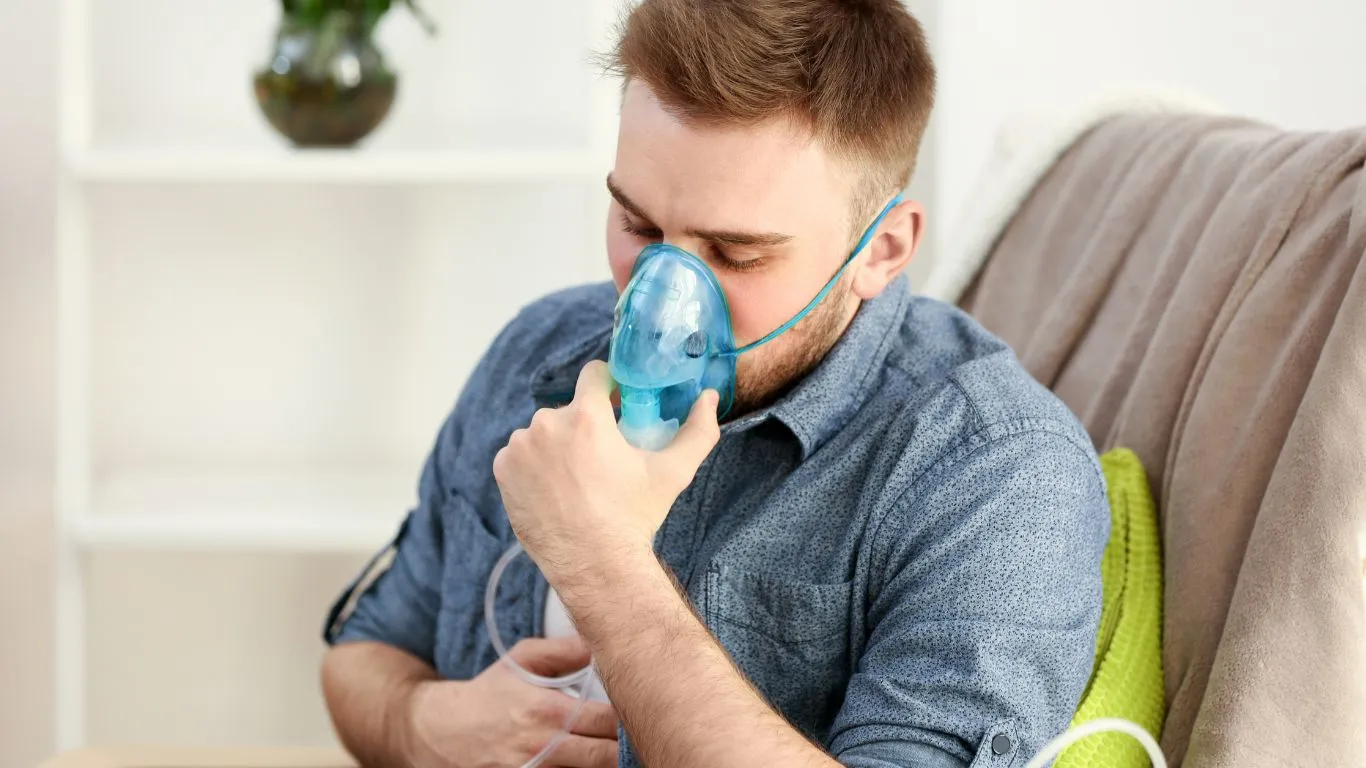Can Asthma Attacks Happen in Sleep? Tips to Prevent Nighttime Attacks 😴💨
So, here’s a question that a lot of people with asthma wonder about: Can asthma attacks actually happen while you’re sleeping? It sounds a little odd, right? But trust me, it’s a real thing that a lot of people deal with. If you’ve ever woken up in the middle of the night, gasping for air or coughing your lungs out, you’re not alone. It’s something that’s happened to me (more times than I care to admit), and it’s definitely a scary experience.
In this chat, let’s dive into why asthma attacks happen during sleep, what you can do to manage them, and maybe even get some inspiration from others who’ve found ways to handle it all.
Why Do Asthma Attacks Happen at Night? 🌙

First off, let’s talk about why asthma attacks can be worse at night. You might think, “Hey, I’m just lying there, not doing anything,” but it’s actually a time when a lot of things can go wrong. For starters, your body’s natural rhythms can make things harder. Your airways might narrow as the night goes on, which doesn’t help if you’re already dealing with asthma.
Also, when we sleep, we’re not as active, so your body’s immune system isn’t working as hard. That means any inflammation that’s already there (in your lungs, for example) might get worse. On top of that, things like temperature changes, allergens like dust mites in your sheets, or even how you’re lying in bed can affect your breathing.
My Experience with Nighttime Asthma 🤧

I used to get really frustrated with asthma attacks in the middle of the night. I remember one night, I woke up choking, couldn’t catch my breath, and had to stumble out of bed to grab my inhaler. Not exactly a peaceful sleep, right? What I didn’t realize back then was how many things contributed to it—like the humidity in my room, the fact that I had a ton of dust bunnies hiding under the bed, and of course, my asthma medicine was all over the place (you know, not in a “let’s follow the doctor’s orders” kinda way).
Over time, I figured out that nighttime asthma could actually be prevented with the right routine. More on that later!
How Can You Manage Asthma While You Sleep? 🛏️

Okay, so you’re probably thinking, “This sounds like a nightmare (pun intended), but what can I do to make sure I’m not waking up struggling to breathe?” Well, I’ve got you covered.
1. Stick to Your Medication 💊
First things first—never skip your inhaler or any asthma medication your doctor prescribed, especially before bed. If you’re taking a long-acting bronchodilator (those are the meds that keep your airways open for longer), make sure you’re using them as part of your routine. I know it might feel like “I’ll be fine,” but trust me, your lungs need that extra help at night.
2. Make Your Bedroom Asthma-Friendly 🛏️
Your bedroom is your sanctuary, but it’s also home to tons of potential asthma triggers. To cut down on those nighttime attacks, keep your room clean! I started vacuuming my room regularly (yes, I actually vacuum now) and washing my pillowcases and sheets in hot water to get rid of dust mites. It really made a huge difference. I also invested in an air purifier, which I swear by—it keeps the air fresh and clear.
Also, consider using a humidifier if the air in your room is dry. Dry air can really irritate your lungs, so adding moisture to the air might help you breathe easier.
3. Get Comfortable with Your Sleep Position 💤
If you’re someone who likes to sleep flat on your back, you might want to rethink that. For me, when I slept flat, I’d wake up feeling even more congested. By propping myself up a bit with extra pillows, I noticed a lot of improvement. It helps reduce any mucus buildup and makes breathing a little easier.
Troubleshooting Common Asthma Nightmares 🛑

Even with all the tips and tricks, sometimes asthma still sneaks up on you at night. So, what can you do if that happens?
1. Medication Not Working? 😕
If you’re still waking up feeling awful, it might be time for a check-in with your doctor. You may need an adjustment in your treatment plan. Trust me, I’ve been there. If your inhaler isn’t cutting it, maybe a stronger medicine or even a different kind of treatment might help. Don’t just suffer through it—there’s usually something that can make it better.
2. Waking Up with a Cough? 🧐
That annoying nighttime cough can sometimes be the worst part. It feels like you can’t get a full night’s sleep without hacking up a storm. Try using a saline nasal spray before bed. It helps clear out any congestion, which might make a huge difference. Also, keep a glass of water by your bedside (I swear I’m not being dramatic here)—if you wake up with that scratchy throat, a sip might help.
3. Still Not Sleeping Well? 💤
If your asthma is keeping you up all night, it’s important to get your sleep back on track. Poor sleep can just make everything worse. Focus on sleep hygiene—make sure your bedtime routine is relaxing, avoid screens, and maybe even consider a calming herbal tea. It might sound a little “out there,” but it really helped me get my nights back.
Real-Life Success Stories 👏
I’ve heard from so many people who’ve faced the same struggles and managed to get their nighttime asthma under control. Here’s a quick success story:
Sarah’s Win Over Nighttime Asthma
Sarah, a good friend of mine, used to wake up almost every night with wheezing and coughing. She was always exhausted the next day, and it really took a toll. After getting her medication sorted out with her doctor, she made a few changes in her bedroom: she bought hypoallergenic bedding, added an air purifier, and started using a cool-mist humidifier at night. It took a little time, but now she sleeps through the night—no more waking up gasping for air!
John’s Struggle with Wheezing
John’s asthma was pretty intense, especially during colder months. He used to have night after night of wheezing and couldn’t figure out why. He started keeping track of his triggers (cold air was a big one) and found that wearing a scarf around his neck helped a ton. Simple but effective! Plus, using a long-acting inhaler before bed worked wonders.
Key Takeaways 📝
- Yes, asthma attacks can happen at night—and they can be super frustrating.
- Factors like allergens, body position, and temperature changes can all contribute to worse asthma at night.
- It’s all about staying on top of your meds, making your bedroom asthma-friendly, and finding the right routine that works for you.
- If you’re struggling, don’t hesitate to talk to your doctor—they can help you get back on track.
FAQs 🤔
Q: Why does my asthma act up at night?
Asthma can get worse at night due to things like hormone levels, allergens in your room, and even the position you’re sleeping in. Your body just reacts differently when you’re sleeping.
Q: Can I prevent asthma attacks while I sleep?
Yep, with the right meds, a clean bedroom, and avoiding triggers, you can reduce the chances of a nighttime asthma attack.
Q: What should I do if I wake up with asthma symptoms?
If you’re experiencing symptoms, take your inhaler or whatever medication you normally use. Don’t wait until it gets worse!
Call to Action 📲
If you’ve been struggling with nighttime asthma, now’s the time to take control. Start making small changes to your routine and talk to your doctor about your treatment options. You deserve a good night’s sleep without asthma getting in the way! 🌟

Bianca Nala is a compassionate Nurse Practitioner with a strong background in primary and respiratory care. As a health writer for Healthusias.com, she combines her clinical expertise with a talent for clear, relatable storytelling to help readers better understand their health. Bianca focuses on topics like asthma, COPD, chronic cough, and overall lung health, aiming to simplify complex medical topics without losing accuracy. Whether she’s treating patients or writing articles, Bianca is driven by a single goal: making quality healthcare knowledge accessible to everyone.







